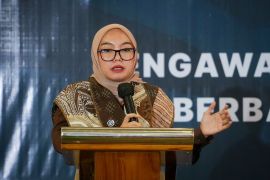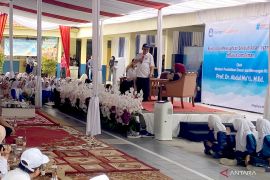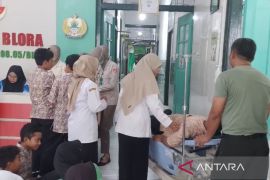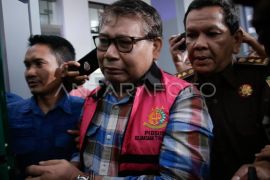"Local government officials and the communities concerned still tend to interpret tsunami early warning message from the Meteorology, Climatology and Geophysics Agency (BMKG) in different ways," Irina Rafliana, the Indonesian Institute of Sciences (LIPI)`s Preparation Community Program Coordinator, said here on Monday
LIPI would organize a workshop themed Increasing the Regions` Capacity In Taking Decisions Concerning Tsunami Threats, to improve the understanding of officers of the Regional Disaster Management n Agency (BPBD) on the tsunami early warning chain`s link with the people.
"Tsunami early warnings issued by BMKG are always comprehensive and in accordance to the prescribed procedures. However, it`s no guarantee that the BPBD officers understand the BMKG`s warnings, so that differences in interpretation of the warnings often happen," she said.
Early warnings were one of the main factors in mitigating disasters, especially in order to reduce the number of victims.
"It can mitigate not only the number of victims, but also material and economic losses from natural disasters," she said.
Vishnu Aditya of the LIPI workshop organizing committee said the workshop would be participated in by representatives from nine regions most prone to tsunami, namely Palu (Central Sulawesi), Sikka (East Nusa Tenggara), Buleleng (Bali), Pacitan (East Java), Bantul (Yogyakarta), Cilacap (Central Java), Bengkulu (Sumatra), Padang (West Sumatra) and Mentawai (West Sumatra).
Meanwhile, guidelines on tsunami early warnings for the media were officially launched by the National Disaster Mitigation Agency (BNPB), the Meteorology, Climatology and Geophysics Agency (BMKG), the communication and informatics ministry, and the Indonesian Institute of Sciences (LIPI) recently.(*)
Editor: Heru Purwanto
Copyright © ANTARA 2011










